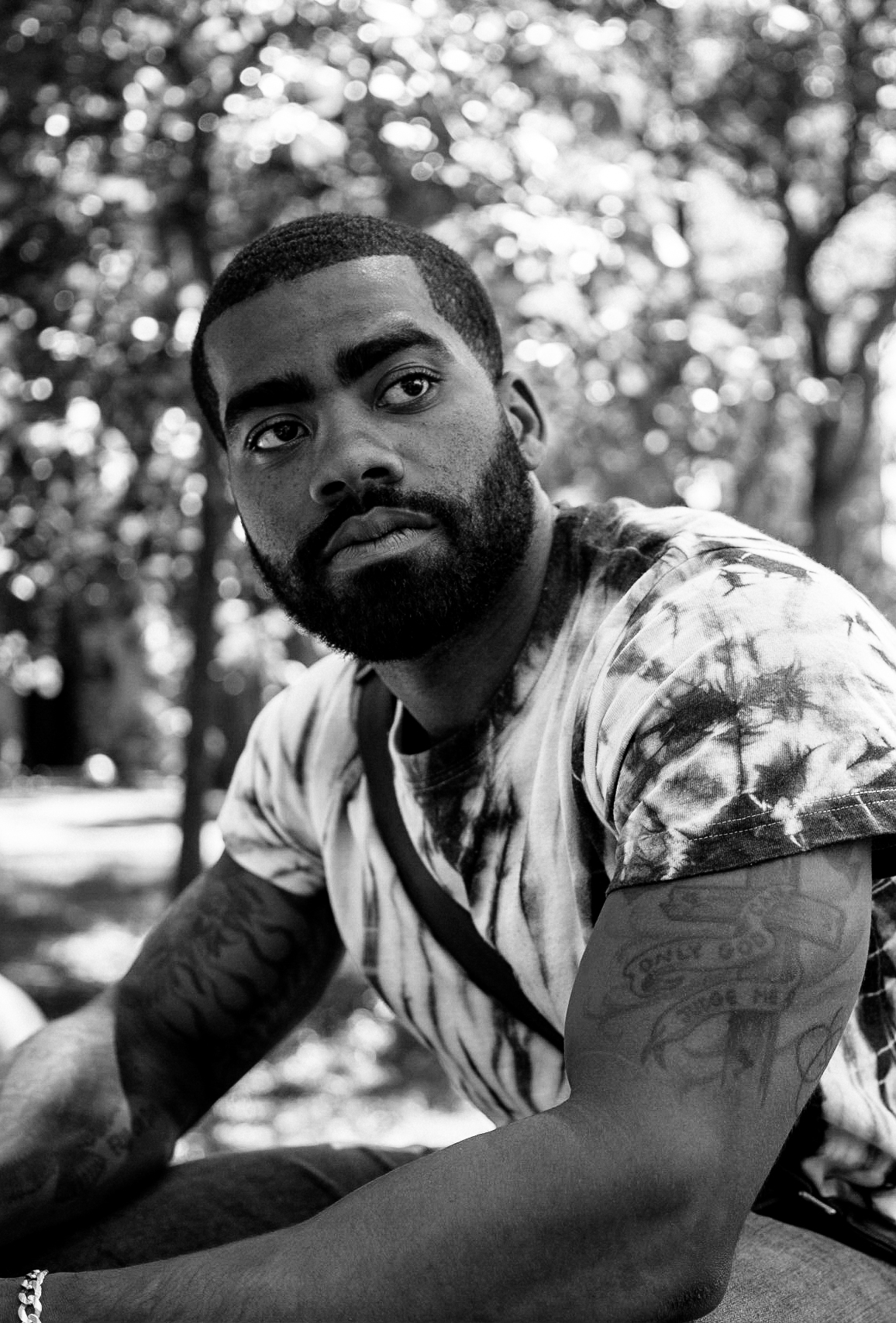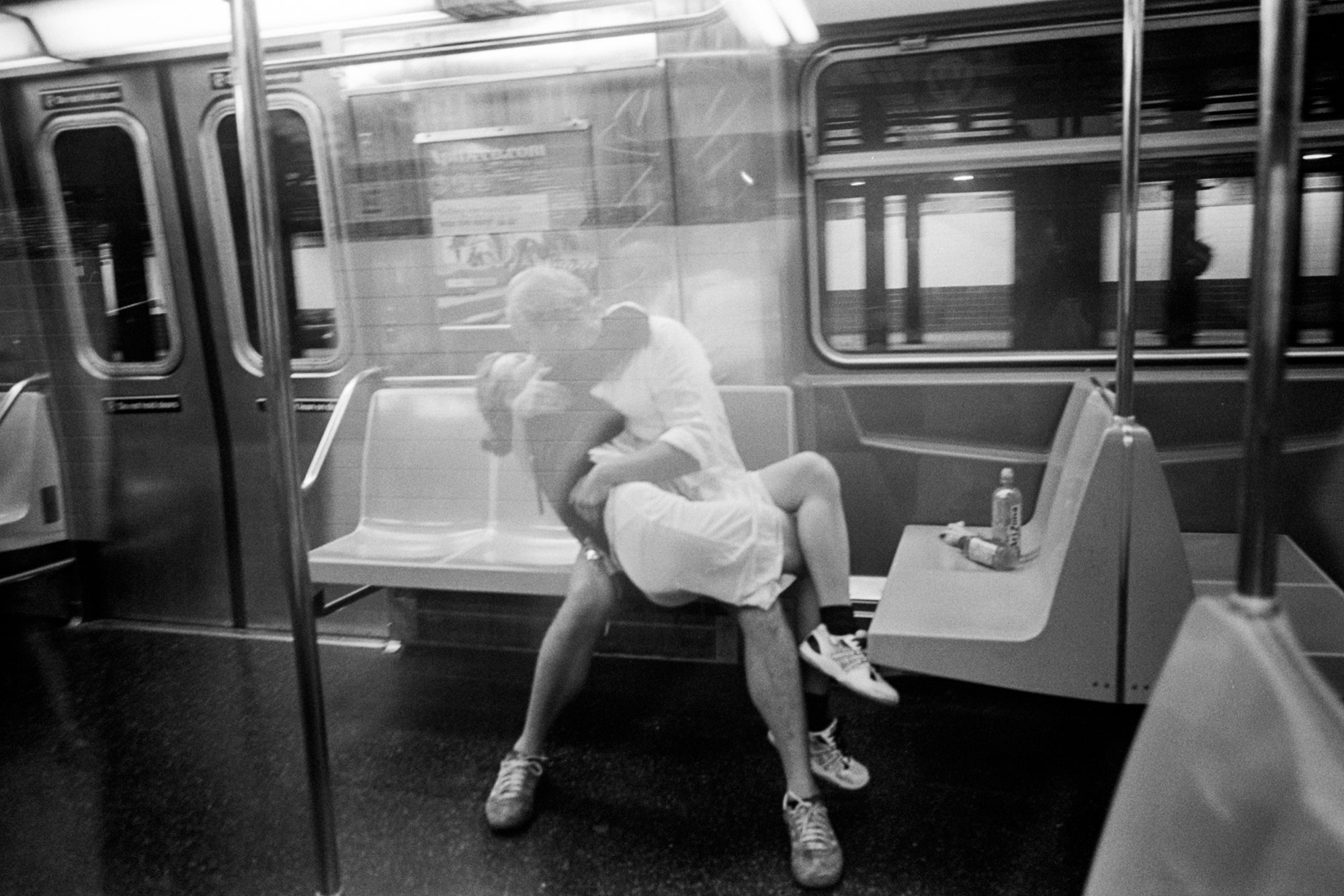Andre: The point that I'm getting at is I need to finish this project. I want to speak and express myself through photographs without my voice getting lost. It's not about being on the street or making certain kinds of images. It's just about going out into the world and having this respect for photography in making interesting and clear images, and to respect myself in doing something true to me.
Mo: And, I mean, what city in America encourages that as much as New York!
Andre: Right? I'm trying to finish this project I'm working on but I'm itching to do more traveling and get more out of New York.
Mo: What are some places that are on your radar?
Andre: Right now, there's so many places in the country that I haven't been and there are places I’ve been but not to photograph. Like, what does Andre look like photographing in Texas or LA? What does it look like in my hometown Omaha, Nebraska?
Mo: Have you done any work back home?
Andre: I haven't even spent much time there since I left for college in 2005, so there's a lot of stuff I want to tap into. That's why I'm feeling like I'm in a good place to land the plane on this long term project I've been working on in NY, so I can make room to work on other stuff.
Mo: One of the most challenging things to ask oneself is, What do I create next? It's nice to have possible projects queued.
Andre: Yup, that’s why I like photographing the way I do. It seems like one idea or image can lead to the next. In reflecting on images I can realize it’s this or that, and the lightbulb goes off.
Mo: We can only think so presently. I feel like having a nuanced intention towards future work allows the universe to aid you. Do you feel like that's something you think of?
Andre: I mean yes and no. I've told this story before, when I was in college basketball. I thought I was a very serious athlete; I wanted to play in the NBA and felt like it was attainable. Everybody encouraged it because I was pretty good, but the problem was being in Omaha, Nebraska playing basketball. It’s not necessarily a place that's going to challenge you against what talent looks like across the country. Eventually I went to college in Iowa to play but I should've been trying to play Division I. Why am I playing Division III?
Andre: So I got to the D League tryouts and I knew immediately I wasn't going to get a call back; it was the biggest lesson in the world. When I fell into photography that's where all these decisions of me doing it on my own terms came into play, because basketball was my first love and it didn’t work out the way I wanted. I got crushed. At first, when I got into photography I didn't take it seriously, but as time went on I started to realize it was the next form I would use to express myself.
Andre: By the time I realized that photography was my second chance, I was more or less operating from survival. Okay, I'm black, I'm a photographer, and I don't have a lot of money, but all of this is new and there's a whole history of this thing, so study where people went and what they did. How did they get there? What and where is their archive? Who made the prints and who did the editing? So it's understanding how to be part of that tradition, but not necessarily thinking about legacy.
Andre: I thought I already knew what legacy and greatness was but then I got trampled at this tryout. I was like, “Fuck! This is not working! “[both laughing] But now I have the understanding and not ignorance. If you want to be on the other end of it, you really need to go and check that out, and not think you've checked it out because you've seen it on TV. I wasn't at NBA games or practices. I wasn't around elite athletes. So why the hell did I think I could compete with them? It was all out of ignorance. At the tryout I recognized that I could do it, but I needed some time to catch up. I say that because I've always had this undeniable doubt that I can do whatever the fuck I want to. [laughing]
Mo: I believe if that's authentic people will feel that. It's an unspoken energy.
Andre: In the whole process, I just want to keep working and making photographs. All the best things about photography are found in the process of making the work. It's not in the accolades; it's not in somebody's school; it's not in some client or on Instagram. It's in going out there and being in it. Being uncomfortable. A lot of people don't want to do things where they're uncomfortable.
Mo: Was there anyone in your family that indicated you could pursue life that way?
Andre: My parents are great so I think yes. I'm the first member in my family to go to college to get a degree. I think in that process of feeling like you're lucky to get out of high school, go to college to play a sport, and have these first experiences, was great. I was the first one to get a passport and get out of the country. They never shot anything down but in the newness of doing all these things you realize how special it is, because my dad was working hard as fuck for me to do this.
Andre: He wasn’t necessarily working hard for me to be a photographer. None of us saw that coming, but he was working hard as hell to give me the opportunity and space to try things or at least get to college—both of my parents. So they have been a blessing, really. It's not necessarily about needing somebody to tell you to be it, but once you start to get enough of these clues you start to get curious enough to continue that path.












